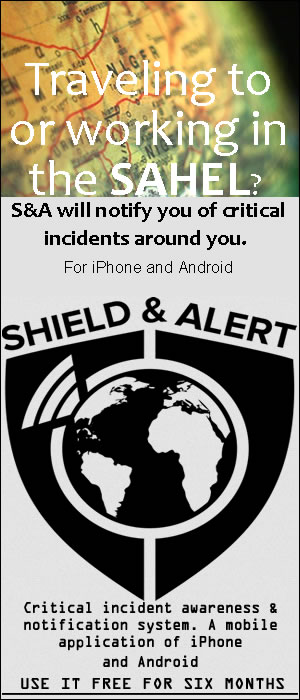By Amaury Hauchard:
After fleeing the jihadists who threatened their remote village, Aichata Hassan had no idea that another mighty challenge lay ahead: proving to the authorities that her 12-year-old daughter existed. Like countless other children in Niger, Nadia has no birth certificate, which meant that when she arrived with the family in their new haven, she could not enrol in secondary school.
The arid Sahel state is the fastest-growing country in the world in terms of population, as well as its poorest, according to the UN’s Human Development Index. Around half the population of around 25 million is aged under 15 — yet 40 percent of children are not officially registered after their birth. The phenomenon is often rooted in the cost and time needed for poor families to travel to a remote government representative and do the paperwork. This means that many families fail to register the newborn within 60 days, as the law requires.
The lack of a certificate isn’t usually a problem for people who remain in their village community all their lives — but it becomes a giant headache when, like Hassan and her family, they are displaced. Nadia’s sister, Zeneba, nine, and brother Abdoulkarim, four, are also in administrative limbo. All three were born at home in Alzou, a small village in the western region of Tillaberi, where there is no government official to record births.
Over the last five years, jihadist attacks have surged in this region, where the borders of Burkina Faso, Mali and Niger converge. The insurgents rode into Alzou on motorbikes, at first taking only a few head of cattle. But then they killed the village chief. That prompted Hassan to leave on foot with her children. They walked some 30 kilometres (20 miles) to reach the town of Sakoira. Nadia, Zeneba and Abdoulkarim were enrolled in the local school.
Out-dated paper culture
But when it came to signing up Nadia for the exam to enter the first year of secondary school, the lack of a birth certificate proved insurmountable. “Many of the children at the school are in this position,” said rural teaching adviser Idrissa Illiassou, who has spent 30 years in the profession. “Youngsters without birth certificates leads to adults without identity papers, and they will be excluded,” she said. ID papers are a massive challenge for Niger, one of the world’s poorest countries. “Our culture is based on paper, but it’s out-of-date. We should use computers,” said Ibrahim Malangoni, national director for civic status.
With support from the international community, Niger is trying to solve the problem. Computerisation and awareness operations, fairs, NGO campaigns are all being rolled out. “We want to carry out as many of these operations as possible to meet the target of having the whole population registered by about 2030,” Malangoni added. Today 60 percent of births are registered, but this still leaves four out of every 10 children invisible to the state. Even so, today’s score is “a remarkable level given that not so long ago, in 2007, we were barely on 30 percent” of registration, he said. An identity card is required to enrol in a school, obtain a grant, open a bank account, vote or go through a police checkpoint.
‘Bring them hope’
“Access to civil documentation and a birth certificate is a precondition for everything,” Jan Egeland, secretary general of the Norwegian Refugee Council (NRC), said in a recent visit. Niger’s problem can be fixed with little money, he said. “Our job is to bring them hope. Do you want tomorrow that these youngsters become the next entrepreneurs, including in the green energy sector we so deeply need, or adults consumed by bitterness?” he asked. Katoumi Youssou, an onion-grower in Sakoira, said she had never had any papers. “We women, we don’t travel far and in the village we don’t need them,” she said.
But the arrival of the insurgency on her doorstep changed everything. Army checkpoints have sprung up and getting through them without papers has become a nightmare. To go to town to sell her onions or attend a marriage, “every time I have to pay the soldiers to let me through,” Youssou said. Now she, like Hassan, is awaiting the arrival of a travelling judge to obtain the correct papers.





